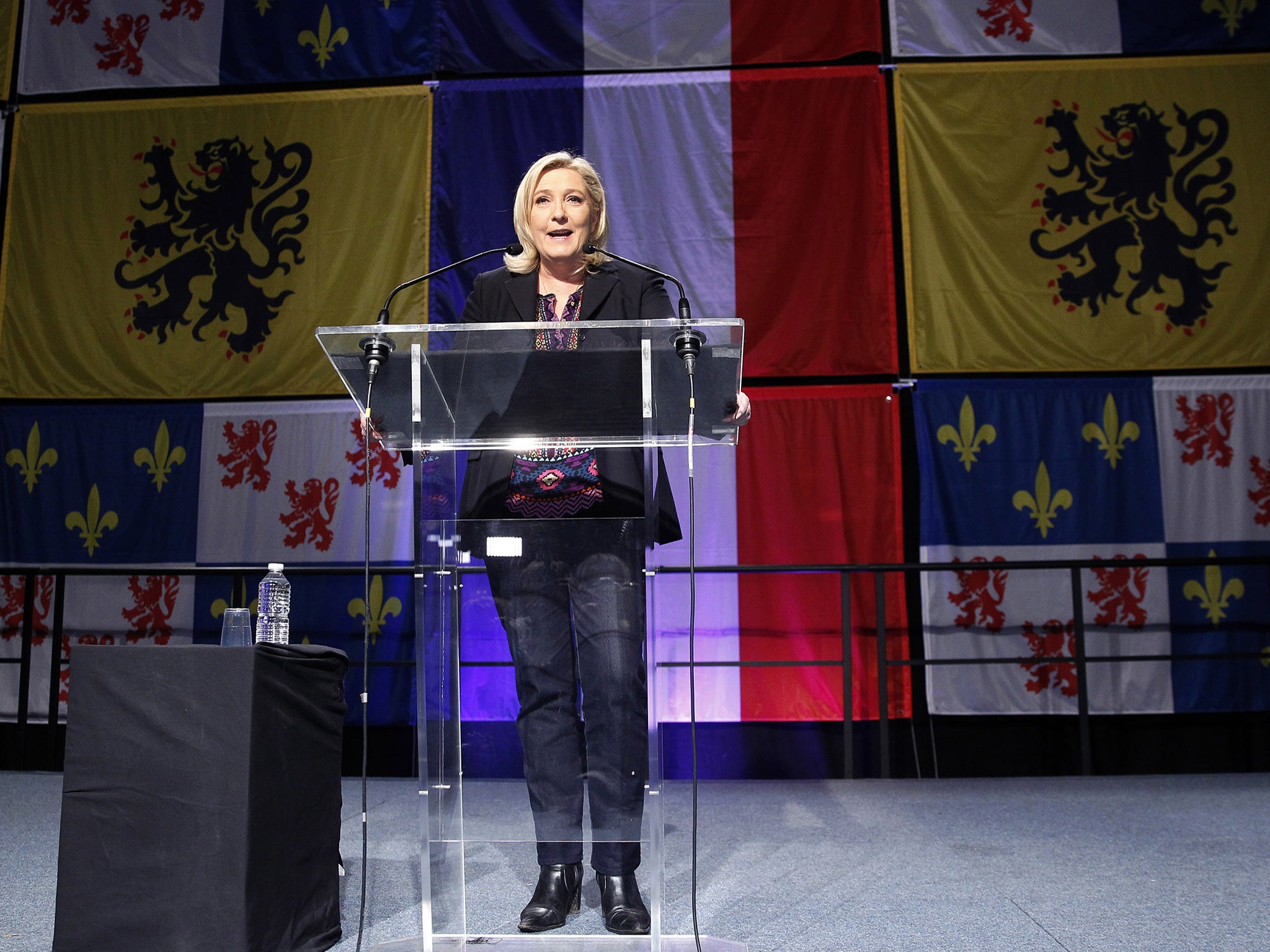French elections: This isn’t the last France has seen of Marine Le Pen
She will still almost certainly top the presidential poll in the first round

Your support helps us to tell the story
From reproductive rights to climate change to Big Tech, The Independent is on the ground when the story is developing. Whether it's investigating the financials of Elon Musk's pro-Trump PAC or producing our latest documentary, 'The A Word', which shines a light on the American women fighting for reproductive rights, we know how important it is to parse out the facts from the messaging.
At such a critical moment in US history, we need reporters on the ground. Your donation allows us to keep sending journalists to speak to both sides of the story.
The Independent is trusted by Americans across the entire political spectrum. And unlike many other quality news outlets, we choose not to lock Americans out of our reporting and analysis with paywalls. We believe quality journalism should be available to everyone, paid for by those who can afford it.
Your support makes all the difference.
France woke up this morning with a strange feeling of déjà vu. Just like in 2002, the far-right Front National (FN) created shock waves by triumphing in the first round of a French election, only to collapse in the second.
French electors, it appears, love to scare their mainstream politicians but are unwilling to plunge into the black hole of rule by the anti-European, anti-immigrant, Muslim-baiting, protectionist FN.
And yet, and yet... there are several differences between 2002 and 2015, which suggest that Marine Le Pen’s success in the first round of regional elections was more than just an ephemeral scare story.
Although the FN won no regions on Sunday, they collected more than 6.5 million votes – their highest-ever score in a French election. The party came first in eight départements (counties) – including a 51 per cent score for Marion Maréchal-Le Pen in Vaucluse, in the lower Rhône valley – and now has hundreds of regional councillors nationwide. It had just a few dozen before.
At first sight otherwise, the outcome looks like French politics as usual. The opposition centre-right won seven of the 12 new super-regions in mainland France. The ruling Socialists and their allies won five.
However, that result was only achieved by tactical voting and by the strategic withdrawal of Socialist candidates in two big regions, Nord-Pas de Calais-Picardie and Provence-Alpes-Côte d’Azur. A fit of civic conscience by 3.5 million voters who had stayed at home in the first round but cast their ballots in the second did the rest.
Recent history suggests that de facto electoral alliances of the mainstream make the far right stronger next time around. They reinforce FN’s beguiling argument that it is the sole force of opposition in a consensual but failing political system.
Marine Le Pen effectively kicked off the 2017 presidential campaign when she declared after the result that she would run as the candidate for “France” and “patriotism” against a “morass” of “globalism” and “internationalism”. Unlike her now estranged father, Jean-Marie, who in 2002 was unable to build on his 18 per cent of the vote in the first round of the presidential election, Ms Le Pen is a true politician. She believes in winning. And she is still only 47.
Sunday’s result confirmed the view that Ms Le Pen cannot assemble the 50 per cent of votes that she needs to become Madame la Presidente in 2017. She will, however, almost certainly top the poll in the multi-candidate first round.
Since only two candidates contest the run-off, winning second place to her will be, de facto, the “golden ticket” to the Elysée Palace. So the desperately unpopular President François Hollande has a lifeline. He “only” needs to come second in the first round to win a second term.
Alarm bells were ringing today in former President Nicolas Sarkozy’s centre-right party, Les Républicains, which is at risk of being supplanted by the Front National as France’s main opposition force. An increasingly tired-looking Mr Sarkozy faces recriminations from party rivals for his tactics and hard-right language since he returned to the leadership last year.
His response was to dismiss one of his most eloquent critics, former Environment Minister Nathalie Kosciusko-Morizet. She left the meeting accusing him of “Stalinist” behaviour.
The next vital election in France is next November’s first ever centre-right primary. The former president has several rivals, notably former Prime Minister Alain Juppé. Mr Sarkozy’s people, sensing the wind turn against him, started pushing for the primary to be brought forward to June.
Paniquer? Moi?
Join our commenting forum
Join thought-provoking conversations, follow other Independent readers and see their replies
Comments